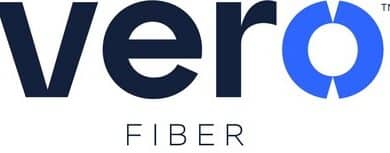USA fintech startups are growing every year. Fintech is the blend of financial and technology, using software or other applications to provide or automate financial services. Fintech startups have completely transformed the finance sector. It took only one decade to go from physical banking to virtual banking and finance using the technology.
The fintech industry is growing rapidly around the globe every year. They are better understanding the demands and needs of the customers and shape their policies accordingly. Resultantly, according to Forbes, fintech companies globally gathered a whopping $133 billion in 2021.
Evolution of Fintech startups in the USA
The history of the fintech industry is old as the first credit card was coined in the market in the late 1950s. After the credit cards, fintech passed many milestones by Implementing discoveries such as ATMs, Electronic Shares, Mainframe Bank computers, and internet stock investment.
In the current era, fintech startups provide the masses with the ability to transfer money via (Digital Netbanking) payment apps on their mobile wallet rather than using or carrying a physical credit card or physical wallet.
Various fintech startups are thriving in the USA. We will go through some of them briefly.

Stripe
Founded in 2010 by Patrick and John Collision
Businesses of all sizes, from startups to multinational corporations, may use Stripe’s software and application programming interfaces (APIs) to manage their finances and take payments online.
Some of its customers include Zoom, Shopify, and even Amazon. Stripe asserts that they have the most robust and comprehensive application programming interface (API) in the industry. Automatically reimbursed from the payments it handles for borrowers, Stripe introduced a new corporate credit card and small company loans in 2019.
Chime
Founded in 2012 by Chris Britt
There is a growing number of firms that are betting on mobile banking. Offering a debit card with no yearly or overdraft penalty, San Francisco-based Chime has seen its sales explode over the past year. The amount is expected to nearly double from 2018’s $52 million to 2019’s $200 million, according to a source with knowledge of the market.
Chime has attracted 5 million clients thanks to several noteworthy strategies, which equates to around 3.3 million users (assuming each client has 1.5 accounts). You may pay for access to Chime’s primary features via direct deposit.
Plaid
Founded in 2013 by Zach Perret and William Hockey
Plaid offers a basic front-end module that speeds up the registration process. It only has a few lines of code to implement. Plaid allows users to transfer and keep track of money from their bank accounts directly within applications like Square Cash and Acorns. Customers include American Express, Venmo, Coinbase, and Betterment.
Sofi
Founded in 2011 by Mike Cagney and Dan Macklin
When it first opened its doors, SoFi was a one-product company offering a single service: refinancing student loans using technology. Although it now offers a variety of services, student debt refinancing remains the company’s bread and butter.
SoFi is a mission-driven business whose primary objective is to improve our customers’ financial standing. From house ownership to retirement savings and education debt repayment, we aim to help our customers achieve their financial goals by creating innovative financial products and services that fit their needs and aspirations.
Credello
Founded in 2020 by Anwesha Mazmudar and Vish Sastry Rachakonda
A new financial technology company based in the United States, Credello, provides convenient access to tailored financial services. Established in 2020 with headquarters in Jersey City, New Jersey, USA. The company makes insightful use of machine learning and AI to provide consumers with objective product suggestions, debt consolidation services, individualised strategies for paying off debt, and other useful tools. Because of this, clients are provided with an easy way to make sound financial decisions.
Coinbase
Founded in 2012 by Brian Armstrong and Fred Ehrsam
As the most popular cryptocurrency exchange in the US, CoinBase is where many newcomers to the cryptocurrency market begin their journey. Investing in cryptocurrencies, access to an integrated trade network, institutional custody accounts, a retail investment wallet, and a safe U.S. dollar coin are just some of the many services offered by Coinbase.
As a result of its success as a dependable and regulated cryptocurrency exchange, as well as its popularity as a personal wallet and a provider of new currencies designed to appeal to those seeking greater anonymity, Coinbase is now a frontrunner in the field of providing crypto custody services to organisations. The firm has established itself as a frontrunner in the cryptocurrency sector.
Ripple
Founded in 2012 by Arthur Britto, Jed McCaleb and Chris Larsen
The peer-to-peer network (RippleNet) and digital money exchange (Ripple) (ripple XRP). This platform is a system for decentralised, peer-to-peer transactions between users. The platform supports the trading of all major currencies, including British pounds, Bitcoin, and airline miles.
In 2019, MoneyGram bought $500 million worth of XRP, allowing the company to raise and spend up to $50 million. Currently, MoneyGram uses XRP in 10% of its purchases made between the United States and Mexico.
Credit Karma
Founded in 2007 by Kenneth Lin
The most prominent feature of Credit Karma is its free credit and debt reports. But it’s also a place where people may build a more secure financial future for themselves. Giving Credit Karma your name and the last four digits of your Social Security number is required. Simple background info about yourself is required.
Your loan information will be accessible to Credit Karma, and they will be able to read it if you permit them to do so. Credit Karma receives a sizable referral fee if a user applies for a loan, buys automobile insurance, or gets a personal loan, house loan, or mortgage through the company’s website.
Conclusion
As the COVID-19 epidemic raged on, the Fintech industry helped to further increase access to financial services by facilitating the rapid expansion of digital financial services of all types, especially in emerging nations. Having access to reliable financial resources is crucial for fighting poverty and fostering economic growth.
Poor individuals, especially women, benefit from increased wealth, fortified resilience, and improved quality of life when they have access to and make use of basic financial resources. To keep the economy afloat in the face of the pandemic, advances in fintech aim to cut the costs of service provision, open up the market to more clients, and lessen the necessity for face-to-face communication.



